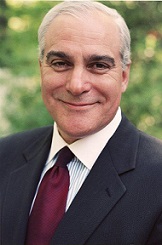The mission and values of the credit union industry over thelast 170 years has always been expressed in the service brought toits members. The first credit unions were founded on the ideals ofself-help, self-responsibility, democracy, equality and solidarity.They were imbued with honesty, openness, social responsibility andcaring for others – the same values that credit unions bring totheir members today.
|Since Franklin Roosevelt signed the Federal Credit Union Act onJune 26, 1934, creating the national system to charter and tosupervise federal credit unions, credit unions have been a shiningexample of quality service, fair prices, community outreach andethical dealing.
|In America, Edward Albert Filene pushed the enabling legislationin Massachusetts where The Massachusetts Credit Union Act becamelaw in 1909. He believed that his employees determined his successmore than any other factor. He took care of his workers, mostlywomen, offering them free health care, hourly breaks and meals. Herealized that cooperatives could help ordinary American workersaccess loans without falling victim to usury, and allow them tosave for the future.
|It's important for credit unions to communicate and build onthis history of authentic values and make a case to millennials andGen Z, who are now impacting the highest levels of publicly tradedcorporations. Environmental, social and governance (ESG) issues areimportant areas of senior management responsibility, and they arepart of a board's duciary duty. Considerations include:Sustainability, climate change and other environmental factors,diversity and inclusion, employment practices, employee relationsand board independence. In fact, the National Association ofCorporate Directors advises that boards consider ESG in theiroversight of strategy and risk. Long-term strategy should createvalue in a socially and environmentally responsible way.
|ESG is increasingly important across the generational spectrum.Millennials, born in 1980 to about 1996, recently became thelargest segment of the U.S. labor market, while Gen Z, the “digitalnatives” following millennials, is growing in consumer marketimportance. This younger group of employees and consumers areenvironmentally and socially aware. Corporate board members andsenior management tend to be baby boomers, born 1946 to 1964, andGen X, born 1965 to 1980. Progress that boomer and Gen Xmanagements make on ESG will be tracked and commented on in socialmedia's public forums, especially by digitally savvy youngergenerations. ESG considerations areparticularly significant to millennials. Having businesses addressthem seems a higher priority to millennials than to boomers and GenX. PR firm Weber Shandwick, found that 47% of millennials believethat CEOs should speak on issues that are important to society,versus 28% of boomers and Gen X. Millennials also said they wouldbe more loyal to their organizations if their CEOs did so.Moreover, millennials put their personal values ahead oforganizational goals. “The 2016 Deloitte Millennial Survey”describes how most millennials volunteer, campaign, donate oractively engage in social, environmental or political activities. Amajority (56%) would avoid working for organizations that conictwith their values, and 70% feel that their personal values arereflected in their employers. Millennials see businesses' potentialto do good, with 87% believing that the success of a businessshould be measured by more than just nancial performance. Ratherthan just short-term profit maximization, success should be builton a foundation of long-term sustainability.
|IBM's 2017 global study, “Gen Z Brand Relationships:Authenticity Matters,” finds that these young “digital natives”have significant market influence, which will only grow as timepasses. Gen Z represents two billion people in the globalmarketplace. Although generally they make limited major purchasesthemselves, they influence buying decisions of their families andothers, giving them economic power well beyond their direct buyingpower. For Gen Z, brands must show trustworthiness. Organizationsmust provide quality products and services, and be clear abouttheir values. If brands break their promises, Gen Zers will switchto a competitor. Gen Z cares about authenticity, is not easilyswayed by marketing pitches, and have the digital acumen to discernbetween real and false claims.
|The convergence of ESG interests across these demographic groupsmakes communication of an organization's environmental progress,social activities and linkage to strategy especially important.Today, when millennials and Gen Z are voting with their careers, aswell as dollars, communication of your ESG status and vision can bemore important than your financial reports.
|Make your case and capture this market. It's yours to behad.
| Stuart Levine is the Chairman & CEO of StuartLevine & Associates, EduLeader LLC. He can be reachedat 516-465-0800 or [email protected].
Stuart Levine is the Chairman & CEO of StuartLevine & Associates, EduLeader LLC. He can be reachedat 516-465-0800 or [email protected].
Complete your profile to continue reading and get FREE access to CUTimes.com, part of your ALM digital membership.
Your access to unlimited CUTimes.com content isn’t changing.
Once you are an ALM digital member, you’ll receive:
- Critical CUTimes.com information including comprehensive product and service provider listings via the Marketplace Directory, CU Careers, resources from industry leaders, webcasts, and breaking news, analysis and more with our informative Newsletters.
- Exclusive discounts on ALM and CU Times events.
- Access to other award-winning ALM websites including Law.com and GlobeSt.com.
Already have an account? Sign In
© 2024 ALM Global, LLC, All Rights Reserved. Request academic re-use from www.copyright.com. All other uses, submit a request to [email protected]. For more information visit Asset & Logo Licensing.









